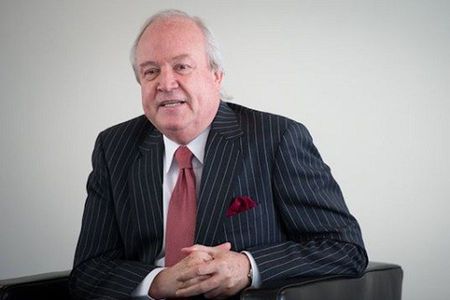Heine Explains China’s Expanding Presence in Latin America
Ambassador Jorge Heine, research professor at the Pardee School appeared on a recent episode of The Newsmakers, TRT World’s flagship show — to discuss China’s growing influence in Latin America. The ambassador elaborated on why China, in spite of being the United States biggest rival, has emerged to be an indispensable ally for Latin America.

When asked about Latin America’s burgeoning dynamic with China, Heine remarked that it signifies a major shift in the region’s history. This is because for almost two centuries of Latin America’s independence, most of its diplomatic, financial, trade, and investment relations were primarily associated with two key players: Europe and the U.S. But that isn’t the case anymore.
“Trade between China and Latin America in the year 2000 was around $12 billion,” said Heine. “Last year, it was $516 billion. So a 40-time increase in, you know, a little over 20 years. What does that mean? That for South America today, the number one trading partner is no longer the U.S. It’s no longer Europe. It is China. That marks a very important difference, and as a rule, it is better to have more partners rather than fewer ones.
“I would say that all in all, big picture, it’s a good thing to have China in the region.” — Ambassador Jorge Heine
The Latin American economy has to deal with the strain caused by the ongoing mass deportations while it still reels from the substantial losses suffered during the pandemic. Heine believes that the trade and investment from China can significantly aid the region’s recovery.
The professor also reminded viewers of the joint statement issued by President Boric of Chile and President Lula of Brazil emphasizing that they want to do business with both China and the U.S., instead of being coerced to choose between the two.
“Latin American countries are independent nations. They have their own sovereignty and they make their own decisions.” — Ambassador Jorge Heine
When asked if the U.S. should feel endangered by China’s presence in Latin America, Heine disagreed and suggested an alternative to deal with the new world order. He said that the States should focus on offering concrete incentives to the region instead of retaliating with sanctions that may jeopardize the U.S.-Latin America relations.
Watch the full episode here.
Professor Jorge Heine is an international relations expert, a lawyer and a diplomat. Besides teaching at the Frederick S. Pardee School of Global Studies, he is an interim director at the Pardee Center for the Study of the Longer-Range Future. He was a former ambassador of Chile to China, India, and South Africa, and also served as a cabinet minister in the Chilean government. Heine has written 18 books, including The Non-Aligned World: Striking Out in an Era of Great Power Competition (2025) that provides insights on how the Global South can navigate the changing diplomacy landscape amid the U.S.-China rivalry. To learn more about Prof. Heine’s scholarly pursuits and accomplishments, visit his faculty profile.